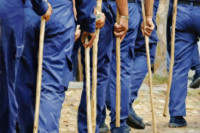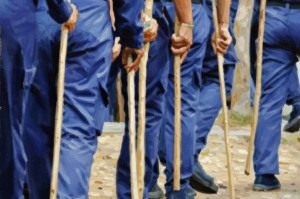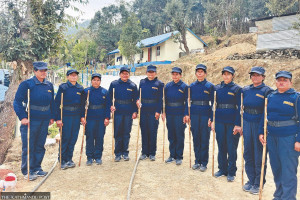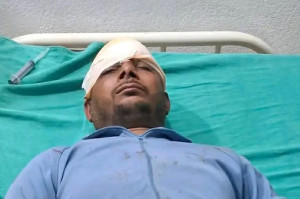Sudurpaschim Province
Bajhang flood victims struggling for justice for over two decades
Around 165 families were relocated to Kailali but 20 years later, they are still landless.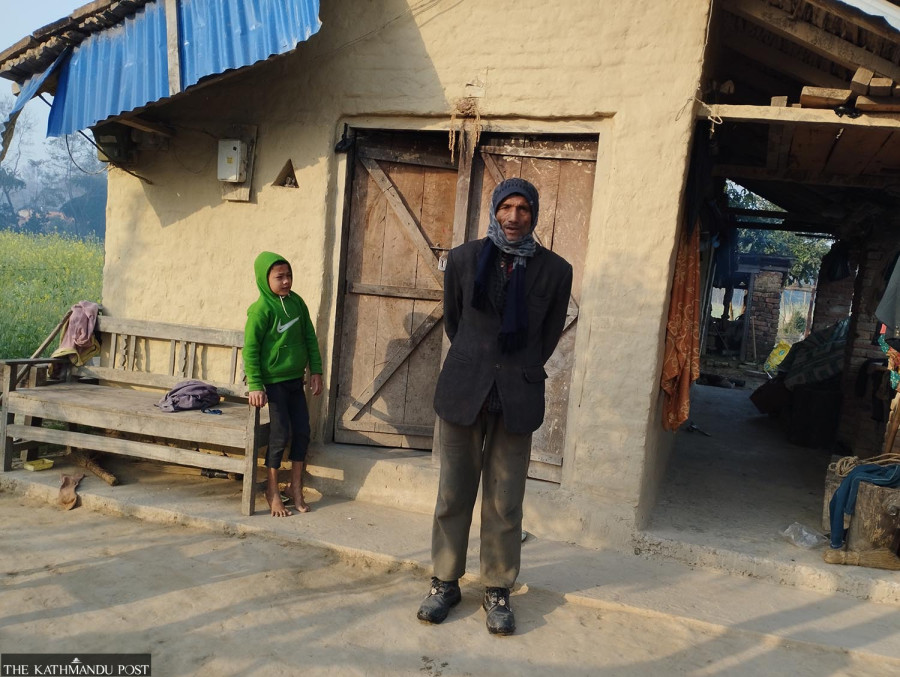
DR Pant
For the past 23 years, 53-year-old Piru Bon and 52-year-old Dabbu Thapa have been running from pillar to post seeking justice. The natives of Bajhang were displaced from their homes in June 2000 when heavy rainfall battered Bajhang causing severe floods in the Seti river.
Around 165 families from the then-six VDCs became homeless. The VDCs of Matela, Malubela, Lekgaun, Kotdewal, Supeda, and Luyeta were all affected by the floods. Among the scores displaced were Bon and Thapa.
Bon has been living on the banks of the Mohana River between the Kanchanpur and Kailali districts while Thapa has been living on the banks of the Banda River in Kanchanpur.
Following the flood and the subsequent displacement of hundreds of families, a high-level team conducted an inspection of the disaster sites. The government, in coordination with the District Development Committee, Bajhang, allocated 70 bighas of land for them to live on in Bhalukhola, Godawari Municipality-1 of Kailali district.
However, displaced victims like Bon and Thapa never got their dues.
“After the completion of the government processes, we moved to Kailali to the allocated location in Bhalukhola. We had started building huts and lived there for a month before forest officials started coming to our settlement and setting our huts on fire,” said Thapa. “This happened during the time of the armed conflict, so we weren’t even sure if the people burning our huts were from the forest department but they did pose as forest officials.”
According to Thapa, the then-District Development Council Bajhang, in coordination with the Kailali District Development Committee, the Ministry of Forestry, the Landless Squatters’ Problems Resolution Commission, and the Ministry of Land Reforms had decided to relocate the flood-displaced families to the empty spaces in the forest area of Bhalukhola.
Despite having the approval of all concerned authorities, Bon and Thapa along with the other displaced families still had to suffer.
According to Thapa, most of the displaced had come to Tarai for the first time and even after a year of living in the government-allocated area, they did not have smooth sailing.
“At night, people in army uniforms would threaten us with consequences if we didn’t vacate the area immediately. After such repeated incidents, more than half of the families left,” said Thapa. “Some went to live with their relatives while most left for India in search of jobs.”
According to Bon, they went to the District Forest Office in Kailali with all the necessary documents. “The officials said that they would help us, but some locals filed a false complaint against us saying we were destroying forest resources,” he said. “I was sent to custody eight times after that. Every time I went to the forest officials, they would arrest me.”
On April 3, 2001, the Ministry of Land Reform and Management issued a circular to the Landless Squatters’ Problems Resolution Commission to give land to the victims of Bajhang. That same day, the Commission also issued a circular to the Landless Squatters' Problems Resolution Commission, Kailali, as per the decision of the Ministry. The commission decided that land should be given to the victims, but the authorities did not do so.
On February 21, 2019, the Kailali District Court issued a verdict in favour of the victims. The Doti High Court also upheld the district court decision on June 28, 2019, and gave a verdict in favour of the victims.
The Ministry of Forestry of the provincial government has also written a letter to the victims, citing the court decision on December 4, 2021.
“We have all the evidence. There are judgements and verdicts of the courts in our favour, but a new settlement has been established on the land that was allotted to us,” Thapa said. “Where do we go now?”
According to Bon, the Godawari Municipality has assured them of solutions to their problems but the assurances are limited to words. “Over 400 hectares of forest area in ward 1 of the municipality has been encroached upon and turned into settlements, and we are still fighting for the land allotted to us,” said Bon.
Advocate Dal Bahadur Dhami, who provides legal assistance to the victims, said that verdicts from two courts, ministry-level decisions, approval from the Landless Squatters’ Problems Resolution Commission, decisions of the ministries of the provincial government, and repeated all-party meetings were all in favour of giving land to the victims. “But still, the victims have been living a hellish life for 23 years,” Dhami said. “The victims also filed a petition but no hearing has been held so far.”
Birendra Bhatta, mayor of Godawari Municipality, says that he has not received any information on this subject since he was elected.
“I can’t say much in this matter before getting the necessary information in coordination with the related authorities,” Bhatta said.




 9.89°C Kathmandu
9.89°C Kathmandu


